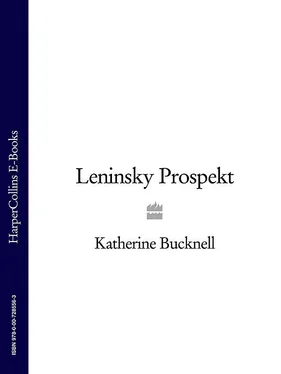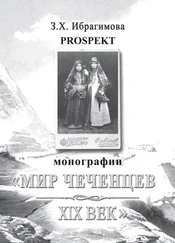Like a bright, black movement inside Nina’s head, somewhere behind her closed eyes as she lay supine, almost afloat, the crude, long-ago elevator dropped to the floor of the rough-walled shaft. Freighted with consequences. She imagined the maiming, heavy smack reverberating. Then silence, clods of earth skittering. As if her father were dead, gone. No cry, no groan in the cavernous tunnel.
Oh God, Mother’s bitterness. Somehow, silently, blaming everyone around her for the ruin of her life, the smell of darkness on the stairs, the house rancid with disappointment, with sorrow.
At least Dad didn’t have to fight in the war. We were never separated. That can’t have been official sympathy, the State letting us care for him?
It wasn’t just Dad’s accident. It was everything. The whole dream, the whole idea. And it’s still going on, and I still don’t understand it. Nina thought with bewilderment, with intense frustration, about the city that lay eight floors below her – a remote, impenetrable scene. I might as well be a prisoner in a tower, not allowed down because I’m an American. Then the image reversed itself, height becoming depth, towers becoming shafts, so that she felt the metropolis soar and sink to stupendous distances, and its vast constructed, mechanized features seemed to have no reality at their centre, no human fleshly life. Yes, she thought, sometimes I felt as if Dad had left me underground, in the dark, in the maze of unfinished tunnels – here and there a station I recognized, a ray of light, even parts that looked beautiful. But so much that Dad believed he was building, taking part in, he just never explained to me. The socialist state. I needed a map, a blueprint. I don’t even know exactly where he was when the accident happened; I only know vaguely when – 1940. What was he trying for? Where was it all supposed to lead? He seemed – content.
After she drained the bath, Nina made herself clean it, dry it, polish the chrome fittings with a soft cloth. Yelena Petrovna won’t even know I’ve taken a bath, she grunted to herself, rubbing. Fine. It satisfied Nina to flummox the maid, to cover her tracks. Why supply any clues at all? Nina wondered. We always used to clean the bath for Professor Szabo and his wife. She cringed, recollecting their forced crepuscular intimacy – Madame Szabo’s grey-shadowed, diabetic skin, Professor Szabo’s broad, flapping bottom. And she felt as though she could hear her father’s tired, persistent assertion, ‘They compactified others much more harshly than us. With us they’ve been generous.’ But housing two invalids at the top of a long, narrow flight of stairs? Where was the generosity in that? Dad needed help just to climb in and out of the bath tub.
Nina couldn’t recall a time when they hadn’t shared that apartment; Mother used to say, ‘Two rooms were perfectly OK without a baby.’ So – the Szabos must have known exactly how old I was, and they never told anyone. Why were they made to share an apartment anyway, a professor at Stalin’s Industrial Academy? Though it must have been the biggest one in the building – high ceilings, the bathroom.
They were witty, the Szabos. And they spoke English with us. That should have won Mother over. Dad would have had no one at all to keep him company, nor would Madame Szabo in her dim, semi-blind world. Madame Szabo took trouble over Dad, fussed in the kitchen for tea, waddled about with his ashtrays, accepted certain confidences. And Professor Szabo made it a point of honour to compete with Dad to do my math homework, as if they were colleagues discussing work, some matter affecting the foundation of socialism. These were gallantries, courtesies, human kindnesses.
I never seemed to catch up at school though, no matter how much they helped me. When we finished, they would give me chocolate. Mother said, ‘The poor woman can’t have it, so she gives it to you to cheer herself up. Honestly, Nina.’ Honestly what? Nina wondered. She flung another handful of water around the inside of the tub to rinse it again. I was too old for chocolate? Would get too fat to dance? Or something about being weak, being drawn in. Dependent. Implicated. Because Mother wanted us to keep to ourselves, keep a difference, a distance. In that apartment? They weren’t even Russian anyway, the Szabos. They were Hungarian. And usefully well-connected in Moscow, generous, with no children of their own to strive for.
Dad would have – what – thrown himself in more? Not just winking at me to eat the chocolate when Mother wasn’t there, but participating in – everything. Life, Soviet life. It’s just that – he couldn’t.
And Nina thought, The kindest thing Professor Szabo did was slaving over bits of Tchaikovsky on his violin. Fast, tricky passages, so that I could do steps for Dad. It must have looked awful, kicking the walls, tipping over laughing. Dad loved it. Especially when Masha was allowed back from the Bolshoi school with me, and we took turns showing off, pretending we didn’t feel smug with the praise, telling them all they were too easy to please, that they had no idea how our teachers would have scorned such foolishness, sent us back to the barre, given us eight of this, sixteen of that. We boasted of how strict school was, its huge demands, which we loved.
Fair, wiry Masha. She was entirely the colour of a raw almond, her skin, her hair, pale white-yellow all over. And from inside the perfect eggshell of her face, her eyes glowed out like uncanny lights, startling blue, serene. Nothing fazed her; she was never tired, never worried. And she looked exactly as she was, unblemished, innocent. Dad liked to call her my best friend, because he wanted me to have a friend like that. She and I would never have voiced such an embarrassing thing. We hardly spoke to each other at all.
Masha was accepted into the class for girls of ten when she was only nine; I was only eight, but she never knew that she was the older one. 1947 – everything so disorganized after the war that they were glad to have any strong bodies at all. We were too young to sweat even, had no smell to one another, might as well have been kittens, with limbs like air, of lightness, deftness, covered in feathery invisible hairs. Our friendship was all about holding hands. Always partners, always the same height; from year to year we must have grown at the same rate. Wordless, intense, upright, inseparable.
Where is Masha now? Nina wondered. Why haven’t I noticed her at the Bolshoi? Not even in the corps? She must have given up, too, in the end.
Amidst these recollections, Nina knew perfectly well that really she was polishing the taps because she had nothing else to do. In her few months back in Moscow, she had committed herself as vigorously as possible to the smallest domestic chores just in order to make the minutes pass. She hated to be still, hated to wait, had never seen the point of leisure. Last week, she had spent a whole morning hanging four Chagall lithographs above the blue living-room sofa. She had bought them in Paris with guilty sums of her mother’s money, paid for the simple frames, justified the purchase as making up part of her wardrobe in some other sense, the wardrobe of a diplomat’s apartment, where he might entertain.
These are images which matter to me, she had thought, taking them from their cardboard wrappings in Leninsky Prospekt, methodically polishing the glass. Not Old Masters. These show something of what I longed for when I sometimes used to long for Russia. There was the angel-faced, clown-trousered artist, carrying his village house in one hand, his palette in the other, as if he could recreate his forsaken beginnings, the babushka crying out for him on the doorstep, a peasant self perched out of her sight on the warm chimney pot. They aren’t real, these images, Nina had observed to herself. They don’t exist. But they are true. And I recognize them. An émigré’s daydream, his fantasy. An idyll because it is lost.
Читать дальше












